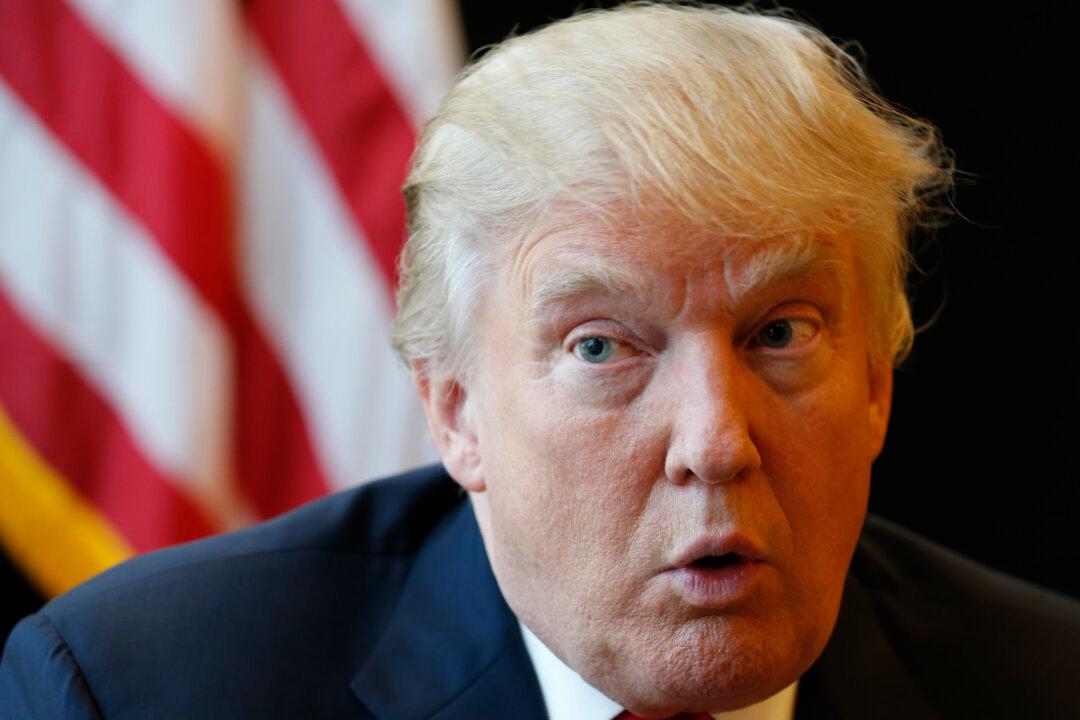Republican presidential candidate Donald Trump is having trouble winning over women voters, especially after his comments on sexual harassment at the work place this week.
Trump was criticized after saying in an interview with USA Today on Aug.1 that he would advise his daughter Ivanka to “find another career or find another company” if she was subject to sexual harassment, like the allegations made against former Fox chief Roger Ailes by the network’s former anchor Gretchen Carlson.
The comments of Eric Trump, the candidate’s son, ignited even more controversy when he said Ivanka would not allow herself to be sexually harassed.
“Ivanka is a strong, powerful woman. She wouldn’t allow herself to be objected [sic] to it,” said Eric Trump on CBS “This Morning.”
“And by the way, you should certainly take it up with human resources. And I think she definitely would, as a strong person. At the same time, I don’t think she would allow herself to be subjected to it,” he added.
Melissa Deckman, Chair of the Political Science Department at Washington College and author of the textbook “Women and Politics,” says the candidate’s sexual harassment comments are “yet one more piece of evidence of lack of empathy.”
“Trump, in order to win, has to do better with women voters,” said Deckman, adding that women outperform men when it comes to voting.
In the 2012 election, 63.7 percent of registered women voted versus 59.8 percent of registered men. That gender gap has been widening in every presidential election since 1980.
Trump’s image among women has generally been strongly negative—70 percent of American women reported holding an unfavorable opinion of him in an April Gallup poll.
During the campaign, he hasn’t scored any bonus points with female voters after a series of high-profile gaffes.
Clinton takes the lead among women, according to Pew Research Center survey conducted June 15-26. The numbers show a 16-point gender gap in general election support for Clinton, as 59 percent of women voters say they would support the former secretary of state over Trump, compared with 43 percent of men. Males were 15 points more likely than females to say Trump understands their needs (44 percent versus 29 percent), the survey found.
“It’s clear that he’s alienating a lot of women,” said Sonia Ossorio, president of the National Organization for Women, New York State.
“His regard and position on women is sexist,” she said.
During the Republican National Convention, Donald Trump’s daughter Ivanka tried to woo female voters. In her speech, she said that her father has been a champion for women’s equality for quite some time.
“At my father’s company, there are more female than male executives. Women are paid equally for the work that we do and when a woman becomes a mother, she is supported, not shut out,” she said as people at the convention cheered.
Ivanka Trump also talked about the gender wage gap and motherhood nationwide. She said her father will change labor laws that were implemented when women were not a significant part of the workforce, and that he will focus on making quality child care affordable and accessible for all.
The former model and executive vice president of development and acquisitions at the Trump Organization, who has three children, then pointed out that like many women in America, she is also a working mother.
Deckman notes that the did recognize women’s disparity, which is an issue that Republicans generally don’t champion. The question is how this translates to Donald Trump’s platform.
Ossorio doesn’t think it necessarily means much since in the end, if elected, he will be the one in the White House making decisions, not her.
“One thing is your own daughter to have the best, and clearing the path for her to have all opportunities,” said Ossorio. “That does not make someone a feminist or a champion for all women.”
Ossorio thinks having Trump as president will negatively impact women’s fight for equality.
“The movement for equality in this country is progressing and nobody wants to go backwards. Having Donald Trump as president would surely lead to slowing that progress,” she said.
Trump’s Female Support
Although Trump offended some women, others are strong supporters of the Republican candidate. Social media pages like Women 4 Trump on Twitter, and Women for Donald Trump on Facebook, have tens of thousands of followers.
These women prioritize national security and immigration and feel Trump will keep them safer than Hillary Clinton could, says Deckman. Women who support Trump tend to care about his promises of building a wall, banning immigration of Muslims, and deporting those who live in the United States without documentation.
Trump’s appeal as an outsider in the election is also a reason why some women may support him.
However, very few women of color support Trump. Clinton has a strong advantage against Trump among African Americans overall, 91 percent to 7 percent, a recent Pew Research poll shows. Among Hispanic women, 71 percent say they support the Democrat, while 19 percent say they support Trump.
Women in general also tend to vote Democrat, something that has been true since the 1980s.
Meanwhile, women within the GOP have been split on Trump. Congresswoman Ileana Ros-Lehtinen (R-FL), for example, said earlier this year that she could not support Trump.
“I don’t plan to vote for Donald Trump,” she told a Spanish-language outlet NTN24 in April. “I don’t feel in my heart that I could support him. But I can’t vote for Hillary Clinton.”
Sarah Palin, on the other hand, was one of the first to endorse Trump, largely because of their shared stance on immigration.




